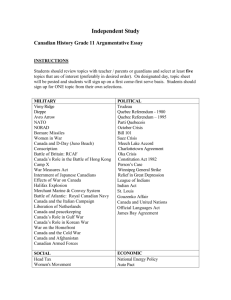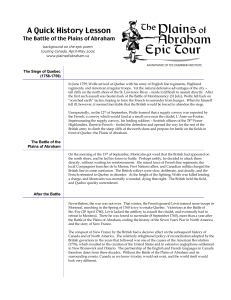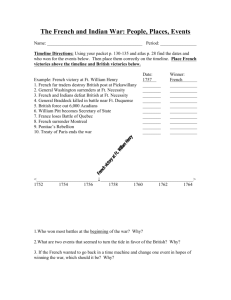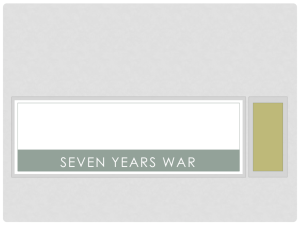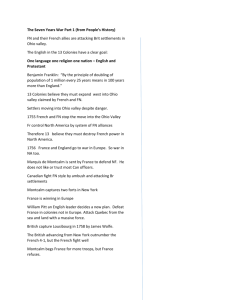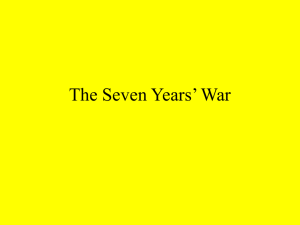Notes
advertisement
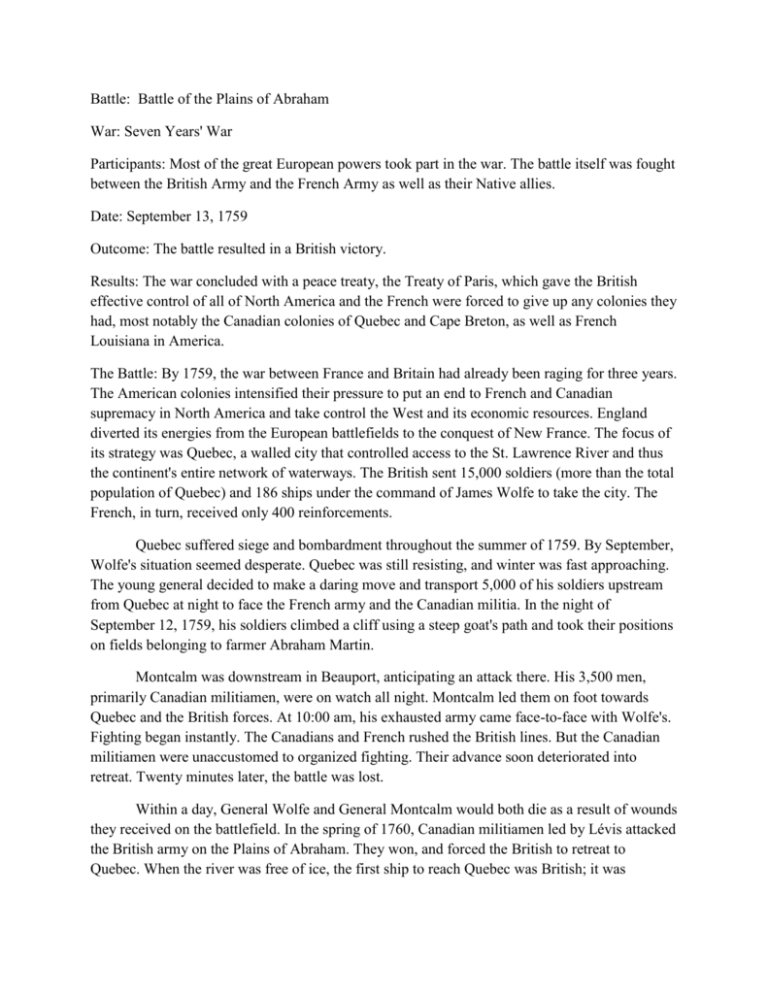
Battle: Battle of the Plains of Abraham War: Seven Years' War Participants: Most of the great European powers took part in the war. The battle itself was fought between the British Army and the French Army as well as their Native allies. Date: September 13, 1759 Outcome: The battle resulted in a British victory. Results: The war concluded with a peace treaty, the Treaty of Paris, which gave the British effective control of all of North America and the French were forced to give up any colonies they had, most notably the Canadian colonies of Quebec and Cape Breton, as well as French Louisiana in America. The Battle: By 1759, the war between France and Britain had already been raging for three years. The American colonies intensified their pressure to put an end to French and Canadian supremacy in North America and take control the West and its economic resources. England diverted its energies from the European battlefields to the conquest of New France. The focus of its strategy was Quebec, a walled city that controlled access to the St. Lawrence River and thus the continent's entire network of waterways. The British sent 15,000 soldiers (more than the total population of Quebec) and 186 ships under the command of James Wolfe to take the city. The French, in turn, received only 400 reinforcements. Quebec suffered siege and bombardment throughout the summer of 1759. By September, Wolfe's situation seemed desperate. Quebec was still resisting, and winter was fast approaching. The young general decided to make a daring move and transport 5,000 of his soldiers upstream from Quebec at night to face the French army and the Canadian militia. In the night of September 12, 1759, his soldiers climbed a cliff using a steep goat's path and took their positions on fields belonging to farmer Abraham Martin. Montcalm was downstream in Beauport, anticipating an attack there. His 3,500 men, primarily Canadian militiamen, were on watch all night. Montcalm led them on foot towards Quebec and the British forces. At 10:00 am, his exhausted army came face-to-face with Wolfe's. Fighting began instantly. The Canadians and French rushed the British lines. But the Canadian militiamen were unaccustomed to organized fighting. Their advance soon deteriorated into retreat. Twenty minutes later, the battle was lost. Within a day, General Wolfe and General Montcalm would both die as a result of wounds they received on the battlefield. In the spring of 1760, Canadian militiamen led by Lévis attacked the British army on the Plains of Abraham. They won, and forced the British to retreat to Quebec. When the river was free of ice, the first ship to reach Quebec was British; it was followed by many others. Montreal was forced to surrender and New France became a British possession. Notes 1. The Battle of the Plains of Abraham was part of the Seven Years' War. 2. The Battle of the Plains of Abraham was fought between the British Army, the French Army, and their Native allies. 3. The Battle of the Plains of Abraham ended in a British Victory. 4. The French forces in The Battle of the Plains of Abraham were led by General Montcalm. 5. The British forces in The Battle of the Plains of Abraham were led by General Wolfe. 6. Quebec was considered important to the British because whomever controlled Quebec controlled the major waterways of North America. 7. The British had more, and better trained troops than the French. 8. The battle itself only lasted about 20 minutes. 9. Both General Wolfe and General Montcalm died as a result of wounds suffered in The Battle of the Plains of Abraham. 10. As a result of The Battle of the Plains of Abraham, the British controlled all of North America.
